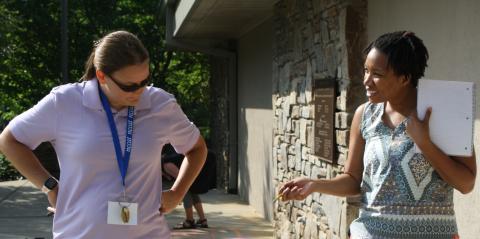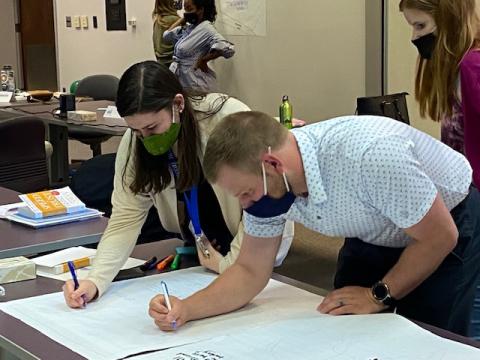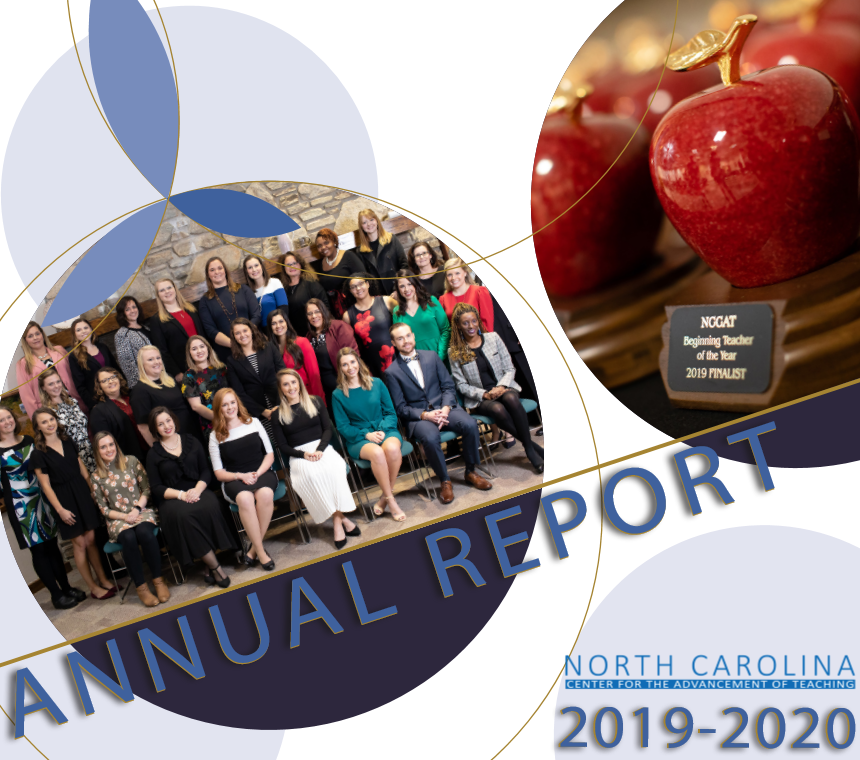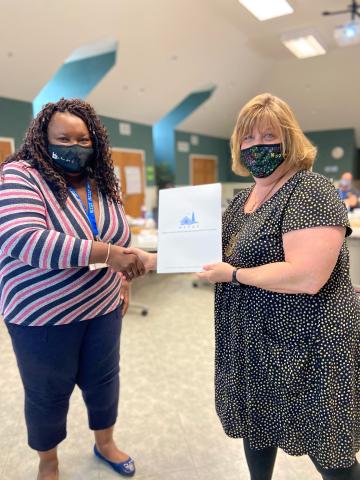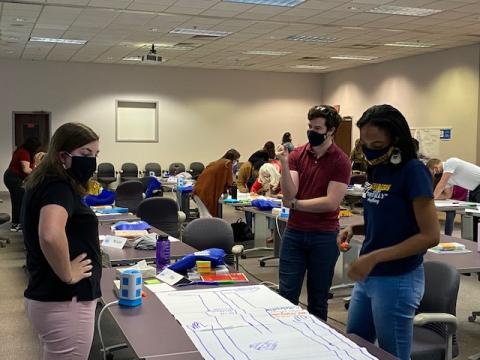Thank you to The Belk Foundation for their support of NCCAT with grant funding to help bring national expertise to state education leaders at the fall Curriculum Leaders Conference and Literacy Leaders Conference led by NCCAT. A $40,000 grant will support a program to bring national expertise to state education leaders at the fall Curriculum Leaders Conference and Literacy Leaders Conference.
Success from the Start: How to Survive and Thrive Your First Three Years in the Classroom
Act now to be part of this special program for beginning teachers.
Regional Teacher of the Year values NCCAT experience
Nicole Rivers is a 15-year veteran educator who has regularly attended professional development courses at the North Carolina Center for the Advancement of Teaching. The 2021 Burroughs Wellcome Fund Sandhills Regional Teacher of the Year does not hesitate when asked what she would tell North Carolina teachers about attending NCCAT.
Meaningful Math Professional Learning with NCCAT
Are you looking for relevant math professional learning this summer? If so, join NCCAT to engage in meaningful learning while collaborating with colleagues from across NC. Whether joining virtually or in-person this summer, we have programs to fit your learning needs.
Second NCCAT Whichard scholarship makes professional development opportunity available for teachers in Clay and Durham Counties
The Honorable Willis P. Whichard continues his long-time support of teachers with the establishment of another fully funded North Carolina Center for the Advancement of Teaching Honored Educator Scholarship.
NCCAT Scholarship applications open until June 30th
Applications for NCCAT Honored Educator Scholarships open until June 30th! Several opportunities to provide substitute teacher reimbursement, teacher reimbursement, teacher travel and money for classroom use.
Scholarship funds provide:
15883 Core Instruction for Middle School Learners - Cullowhee
New programs added to NCCAT calendar
Some exciting new professional development opportunities added to the NCCAT upcoming calendar of events.
Math Professional Learning Sessions Available Now
Kick off the 2021-22 school year with NCCAT math professional learning. A variety of sessions are being offered throughout the summer that are innovative and timely for our NC math classrooms. Fill your instructional toolbox this summer with these great virtual and in-person offerings.
